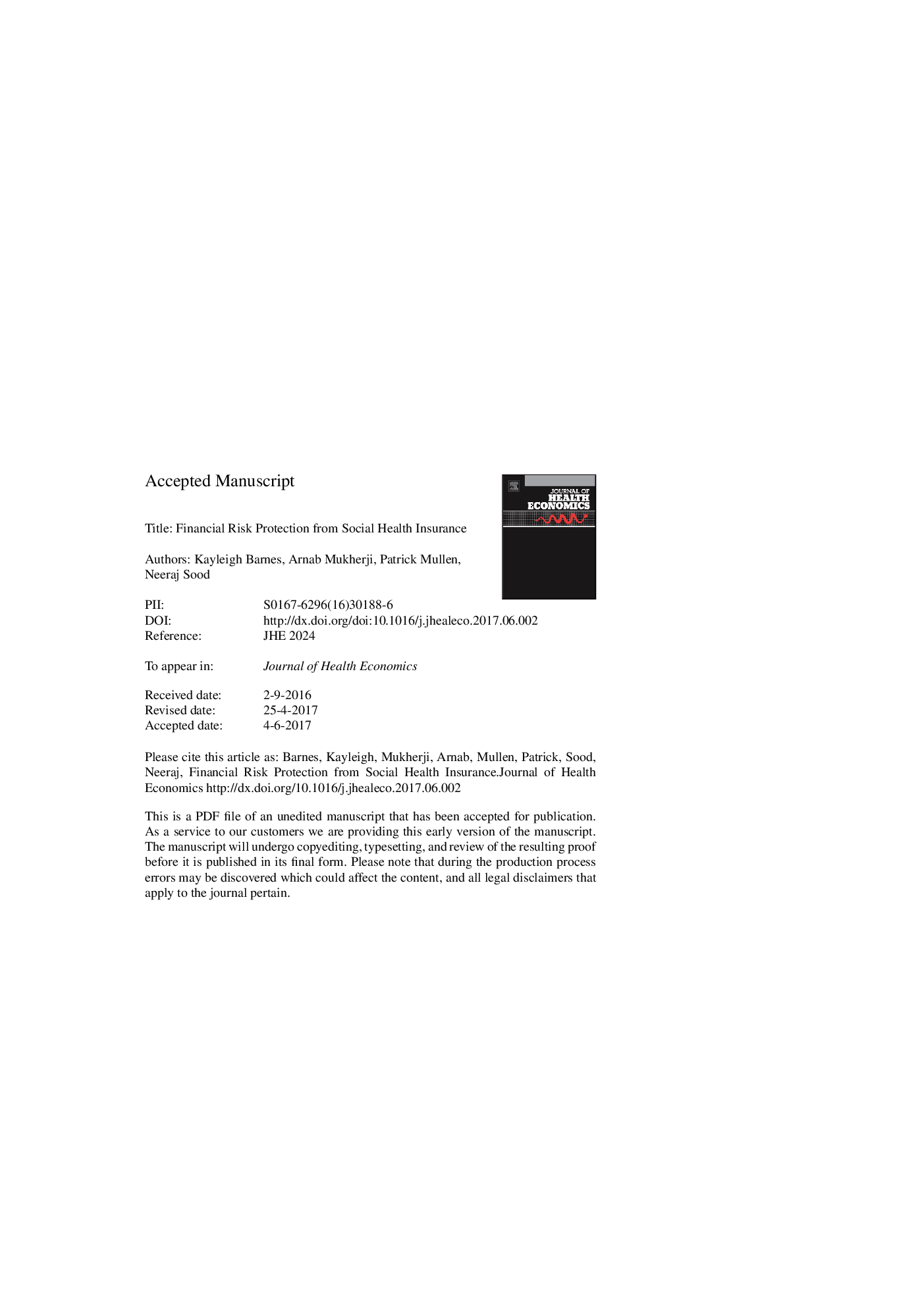| Article ID | Journal | Published Year | Pages | File Type |
|---|---|---|---|---|
| 5100734 | Journal of Health Economics | 2017 | 52 Pages |
Abstract
This paper estimates the impact of social health insurance on financial risk by utilizing data from a natural experiment created by the phased roll-out of a social health insurance program for the poor in India. We estimate the distributional impact of insurance on of out-of-pocket costs and incorporate these results with a stylized expected utility model to compute associated welfare effects. We adjust the standard model, accounting for conditions of developing countries by incorporating consumption floors, informal borrowing, and asset selling which allow us to separate the value of financial risk reduction from consumption smoothing and asset protection. Results show that insurance reduces out-of-pocket costs, particularly in higher quantiles of the distribution. We find reductions in the frequency and amount of money borrowed for health reasons. Finally, we find that the value of financial risk reduction outweighs total per household costs of the insurance program by two to five times.
Related Topics
Health Sciences
Medicine and Dentistry
Public Health and Health Policy
Authors
Kayleigh Barnes, Arnab Mukherji, Patrick Mullen, Neeraj Sood,
